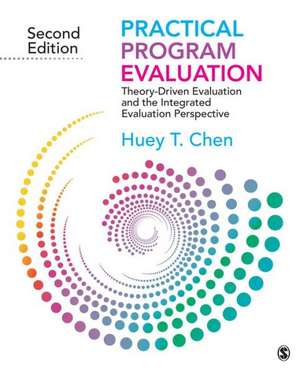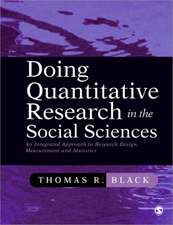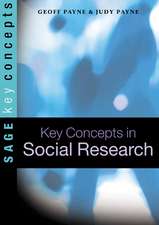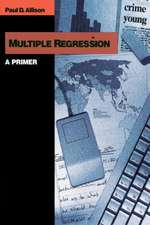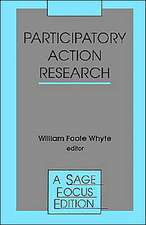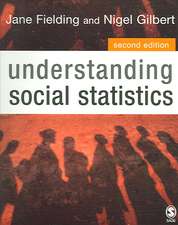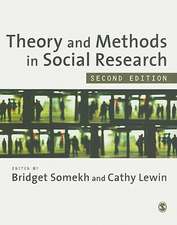Practical Program Evaluation: Theory-Driven Evaluation and the Integrated Evaluation Perspective
Autor Huey T. (Tsyh) Chenen Limba Engleză Paperback – 12 noi 2014
New to this edition:
- A new comprehensive evaluation typology in Chapter 2 helps readers systematically identify stakeholders’ needs and select the evaluation options best suited to those needs.
- A new Part V, Advanced Issues in Program Evaluation, includes three new chapters that help readers understand challenging issues and innovative approaches, and enhance their competencies in applying them.
- Coverage of cutting-edge evaluation perspectives and approaches, including the Action Model/Change Model Schema, helps readers think “outside the box.”
- New chapters introduce the innovative holistic effectuality approach as an alternative to the traditional experimentation evaluation approach for conducting real-world outcome evaluation and expand the scope of evaluation from effectuality to viability and transferability.
- A new Chapter 14 explores the relative strengths and limitations of formal theories versus stakeholder theories.
- A new Chapter 15 compares two approaches to evaluation and dissemination: the top-down approach versus the bottom-up approach.
- The more complex evaluation theories presented in later chapters are presented in accessible language and illustrated with interesting real-world examples.
| Toate formatele și edițiile | Preț | Express |
|---|---|---|
| Paperback (1) | 696.78 lei 3-5 săpt. | +28.95 lei 6-12 zile |
| SAGE Publications – 12 noi 2014 | 696.78 lei 3-5 săpt. | +28.95 lei 6-12 zile |
| Hardback (1) | 687.28 lei 6-8 săpt. | |
| Sage Publications, Inc – 7 dec 2004 | 687.28 lei 6-8 săpt. |
Preț: 696.78 lei
Preț vechi: 941.59 lei
-26% Nou
Puncte Express: 1045
Preț estimativ în valută:
133.33€ • 138.31$ • 111.18£
133.33€ • 138.31$ • 111.18£
Carte disponibilă
Livrare economică 06-20 martie
Livrare express 19-25 februarie pentru 38.94 lei
Preluare comenzi: 021 569.72.76
Specificații
ISBN-13: 9781412992305
ISBN-10: 1412992303
Pagini: 464
Dimensiuni: 187 x 232 x 19 mm
Greutate: 0.77 kg
Ediția:Second Edition
Editura: SAGE Publications
Colecția Sage Publications, Inc
Locul publicării:Thousand Oaks, United States
ISBN-10: 1412992303
Pagini: 464
Dimensiuni: 187 x 232 x 19 mm
Greutate: 0.77 kg
Ediția:Second Edition
Editura: SAGE Publications
Colecția Sage Publications, Inc
Locul publicării:Thousand Oaks, United States
Recenzii
"The strength of this text is its coverage of practical concerns for consideration by practitioners who are envisioning, planning, and executing program evaluations."
“Chen has the best conceptual framework, and the quality of his writing and analysis are superb. He takes the reader through the essential steps in evaluation, with particularly valuable treatment of stakeholder involvement.”
“In this eminently readable book, Chen presents a strong matrix framework for conceptualizing a full range of evaluation strategies and approaches… The writing is exceptionally clear, accessible to novice evaluators, and, because it is fair-minded and principled, of relevance to seasoned evaluators as well.”
"Professor Chen's Second Edition of Practical Program Evaluation sets a new standard for providing a variety of systematic frameworks for conducting high quality program evaluations. The readers will come away with a detailed understanding of both conventional and cutting-edge approaches. It is a must-read for practicing program evaluators, evaluation scholars, and students of evaluation."
“Huey Chen brings decades of evaluation and experience to this new edition. He continues his innovative and pragmatic thinking about evaluation including identifying, constructing, and testing theories that can work, that is, practical theories. Dr. Chen shows how to blend formative and summative evaluation, process and outcome evaluation, theory and action, and much more. If one desires to articulate and build program theories that work, from the bottom up, and conduct effective evaluations, this rigorous and practical book is for you."
“Dr. Chen’s latest effort offers evaluators a thoughtful expansion on the topics addressed in Practical Program Evaluation (2005) in terms of program theory, logic modeling, and his evaluation typology. New chapters gleaned from the field reveal solution sets for overcoming challenges in a variety of contexts while still balancing scientific and stakeholder needs. This new work provides a solid foundation for the further development of an evaluator’s acumen.”
“Chen has the best conceptual framework, and the quality of his writing and analysis are superb. He takes the reader through the essential steps in evaluation, with particularly valuable treatment of stakeholder involvement.”
“In this eminently readable book, Chen presents a strong matrix framework for conceptualizing a full range of evaluation strategies and approaches… The writing is exceptionally clear, accessible to novice evaluators, and, because it is fair-minded and principled, of relevance to seasoned evaluators as well.”
"Professor Chen's Second Edition of Practical Program Evaluation sets a new standard for providing a variety of systematic frameworks for conducting high quality program evaluations. The readers will come away with a detailed understanding of both conventional and cutting-edge approaches. It is a must-read for practicing program evaluators, evaluation scholars, and students of evaluation."
“Huey Chen brings decades of evaluation and experience to this new edition. He continues his innovative and pragmatic thinking about evaluation including identifying, constructing, and testing theories that can work, that is, practical theories. Dr. Chen shows how to blend formative and summative evaluation, process and outcome evaluation, theory and action, and much more. If one desires to articulate and build program theories that work, from the bottom up, and conduct effective evaluations, this rigorous and practical book is for you."
“Dr. Chen’s latest effort offers evaluators a thoughtful expansion on the topics addressed in Practical Program Evaluation (2005) in terms of program theory, logic modeling, and his evaluation typology. New chapters gleaned from the field reveal solution sets for overcoming challenges in a variety of contexts while still balancing scientific and stakeholder needs. This new work provides a solid foundation for the further development of an evaluator’s acumen.”
Cuprins
PREFACE
SPECIAL FEATURES OF THE BOOK
ABOUT THE AUTHOR
PART I: INTRODUCTION
1. Fundamentals for Program Evaluation
2. Understand Approaches to Evaluation and Select Ones That Work: The Comprehensive Evaluation Typology
3. Logic Models and the Action Model/Change Model Schema (Program Theory)
PART II: PROGRAM EVALUATION TO HELP STAKEHOLDERS DEVELOP A PROGRAM PLAN
4. Helping Stakeholders Clarify a Program Plan: Program Scope
5. Helping Stakeholders Clarify a Program Plan: Action Plan
PART III: EVALUATING IMPLEMENTATION
6. Constructive Process Evaluation Tailored for the Initial Implementation
7. Assessing Implementation in the Mature Implementation Stage
PART IV: PROGRAM MONITORING AND OUTCOME EVALUATION
8. Program Monitoring and the Development of a Monitoring System
9. Constructive Outcome Evaluations
10. The Experimentation Evaluation Approach to Outcome Evaluation
11. The Holistic Effectuality Evaluation Approach to Outcome Evaluation
12. The Theory-Driven Approach to Outcome Evaluation
PART V: ADVANCED ISSUES IN PROGRAM EVALUATION
13. What to Do if Your Logic Model Does Not Work as Well as Expected
14. Formal Theories Versus Stakeholder Theories in Interventions: Relative Strengths and Limitations
15. Evaluation and Dissemination: Top-Down Approach Versus Bottom-Up Approach
References
Index
SPECIAL FEATURES OF THE BOOK
ABOUT THE AUTHOR
PART I: INTRODUCTION
1. Fundamentals for Program Evaluation
2. Understand Approaches to Evaluation and Select Ones That Work: The Comprehensive Evaluation Typology
3. Logic Models and the Action Model/Change Model Schema (Program Theory)
PART II: PROGRAM EVALUATION TO HELP STAKEHOLDERS DEVELOP A PROGRAM PLAN
4. Helping Stakeholders Clarify a Program Plan: Program Scope
5. Helping Stakeholders Clarify a Program Plan: Action Plan
PART III: EVALUATING IMPLEMENTATION
6. Constructive Process Evaluation Tailored for the Initial Implementation
7. Assessing Implementation in the Mature Implementation Stage
PART IV: PROGRAM MONITORING AND OUTCOME EVALUATION
8. Program Monitoring and the Development of a Monitoring System
9. Constructive Outcome Evaluations
10. The Experimentation Evaluation Approach to Outcome Evaluation
11. The Holistic Effectuality Evaluation Approach to Outcome Evaluation
12. The Theory-Driven Approach to Outcome Evaluation
PART V: ADVANCED ISSUES IN PROGRAM EVALUATION
13. What to Do if Your Logic Model Does Not Work as Well as Expected
14. Formal Theories Versus Stakeholder Theories in Interventions: Relative Strengths and Limitations
15. Evaluation and Dissemination: Top-Down Approach Versus Bottom-Up Approach
References
Index
Notă biografică
Descriere
Introducing students to the real world of evaluation and focusing on issues that arise in professional practice, this book shows readers how to systematically identify stakeholders' needs in order to select the evaluation options best suited to meet those needs.
